Carbon Movements: The Vibrotactile in Performance
Wednesday, May 22nd at 1:00pm – 1:30pm, Moment Discovery
Deaf performer Connor Yuzwenko-Martin presents their work on Carbon Movements, a performance created using vibrotactile elements created by David Bobier and Jim Ruxton of the VibraFusionLab
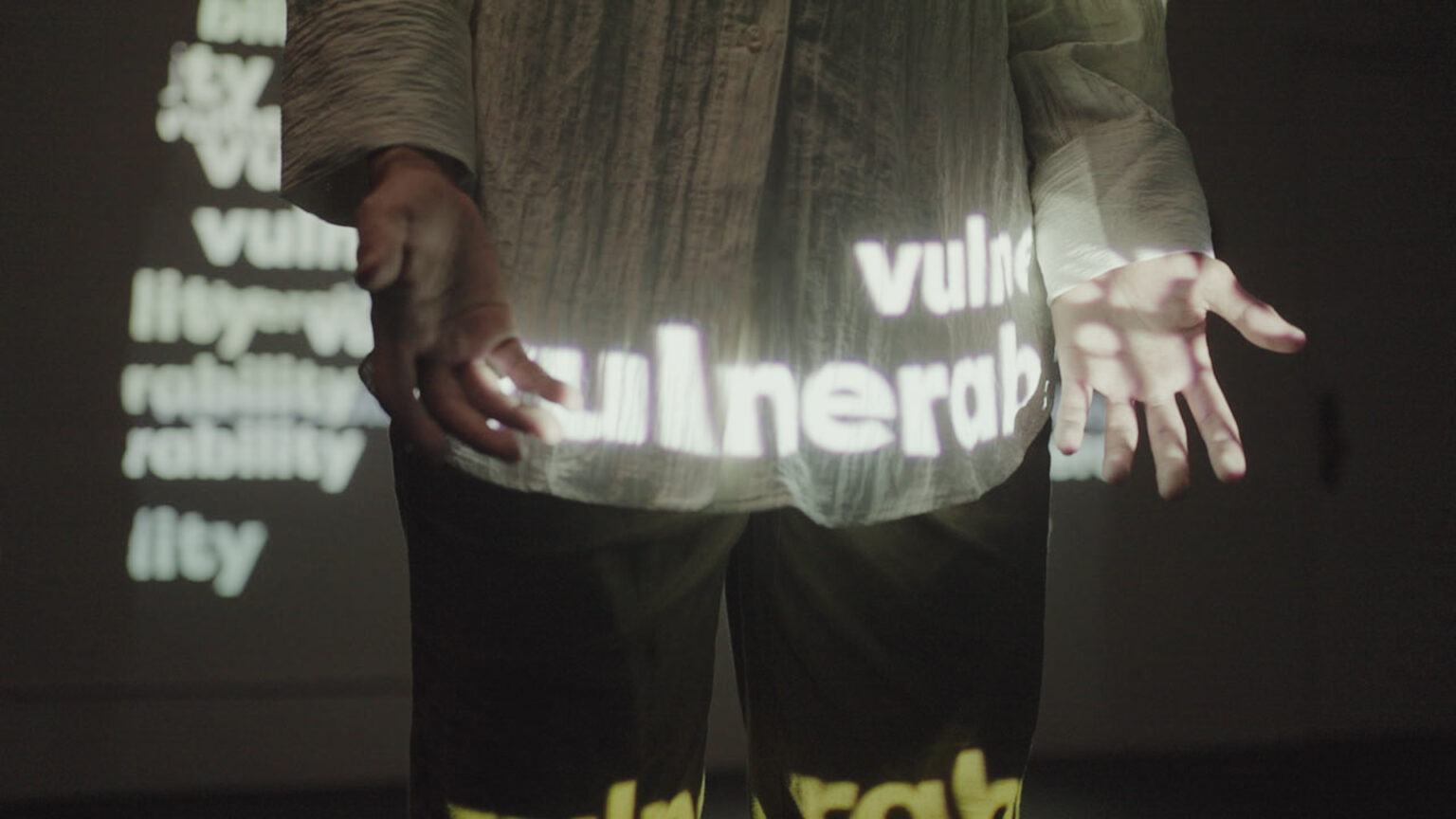
What new theatrical vocabularies and performance experiences are possible through creative exploration with technologies?
Curiosity, communication, connection, control.
Can we genuinely coexist in an environment without disturbing it? Where do the commonalities and connections lie between our inner and outer landscapes, and why do we feel the need to control them both?
Carbon Movements is a groundbreaking new dance performance that includes a unique tactile and visual score. Starring Deaf artist Connor Yuzwenko-Martin, with vibrotactile elements created by David Bobier and Jim Ruxton of the VibraFusionLab and direction by professional choreographer Ainsley Hillard.
Facilitator
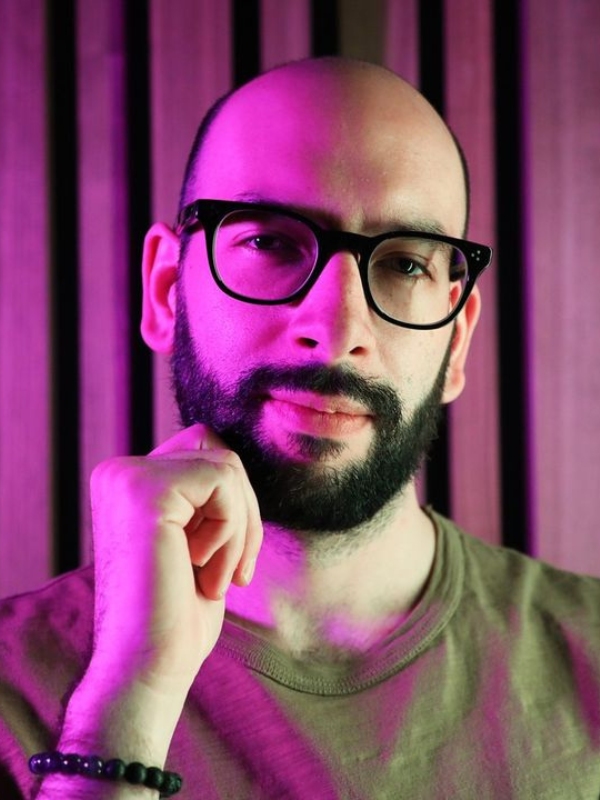
Connor Yuzwenko-Martin (he/him)
is descended from settlers, and recognizes and strives every day to honour and act upon the fact that his work and accomplishments take place on Treaty 6 territory, primarily in the region of Amiskwaciy’waskahan, known as the settler city of Edmonton. He benefits from the land, water, and air shared by countless generations that have come before us and will come after us, and aims to live in harmony with this cycle.
Connor has nurtured a lifelong passion for theatre and accessibility since childhood. His primary goal is to act as a communications liaison between multiple theatres and groups in order to bring greater consistency to the various inclusion efforts being put forth through the coordination of events, communications management, and other facilitation roles – as well as pursuing his own art!
Alt[d : Marginality, Senses and Technology
Wednesday, May 22nd at 1:30pm – 2:00pm, Moment Discovery
Peter Farbridge speaks to his work with artists Montreal and Vancouver working with or between different psychological, artistic, physical and ethno-cultural perspectives. Together they developed and tested new dramaturgical ideas using interactive, immersive and other technological devices.
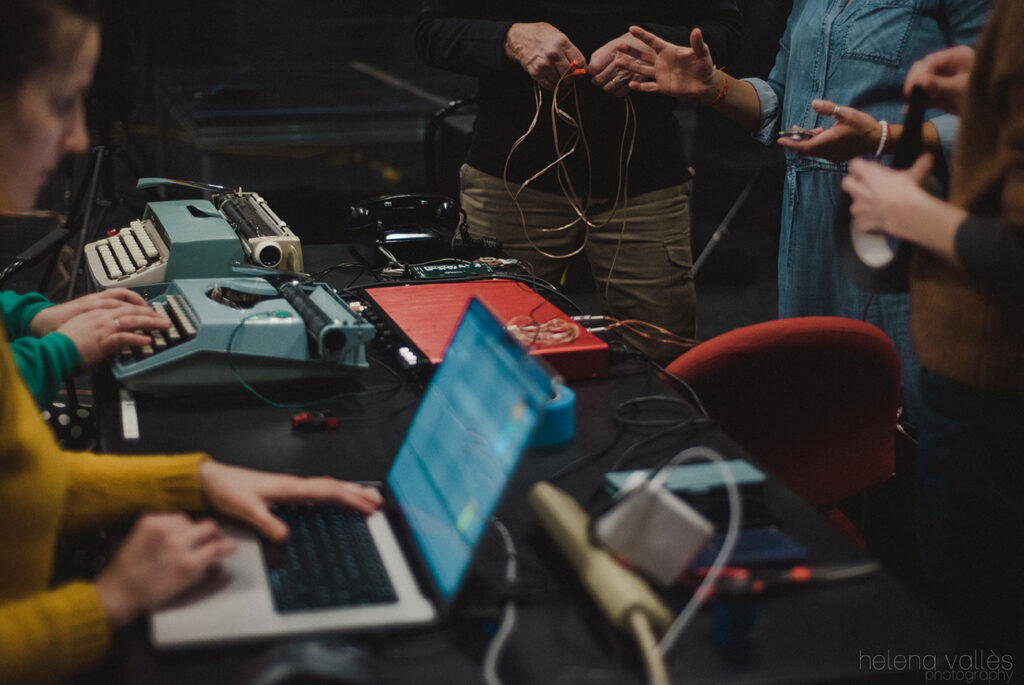
This short video presentation explores a series of performance research labs, “Alternative Dramaturgies” that took place between October 2023 and March 2024. Four artists working with or between different psychological, artistic, physical and ethno-cultural perspectives examined such topics as:
- How can technology refocus marginal perspectives in chosen dramaturgies?
- What creative opportunities or challenges does technology offer artists?
- What sensory experiences can technology communicate to audiences?
- What new dramaturgies might emerge?
- What is shared between artists as physical and emotional experiences?
- What are the relational aspects of their experience?
Facilitator
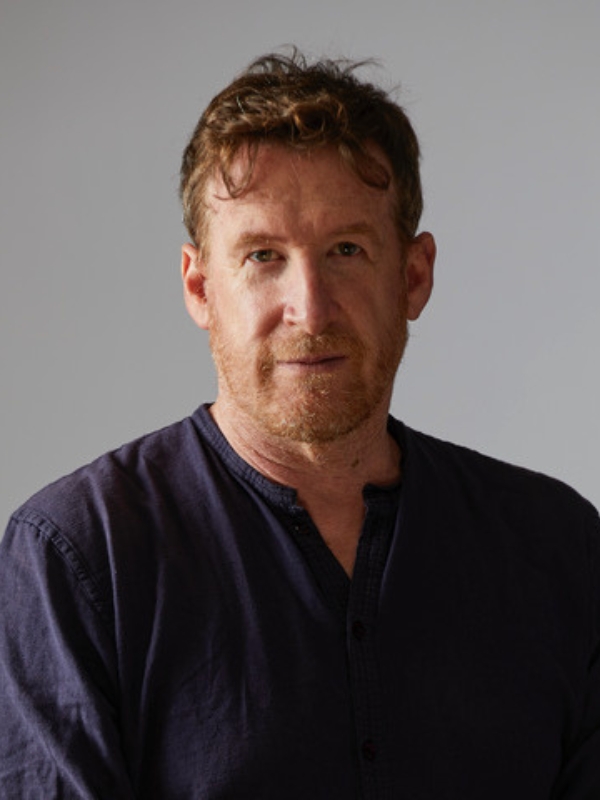
Peter Farbridge (he/him) Peter is a theatre actor and creator working in Montreal. As founding member and co-artistic director of the Modern Times Stage Company from 1989 to 2022, Peter appeared in many of the productions, including the title roles of Macbeth and Hamlet. He has earned several Toronto Dora awards for his work with the company. Among that work, Peter has co-translated and adapted the plays of several Iranian artists with Soheil Parsa, and he has served as co-writer or co-deviser on several new theatrical productions, including Hallaj (2009) and Forgiveness (2014). In 2017 Peter was nominated for a Meta Award for his performance in Progress! for Infinitheatre. He has recently completed an MA in Anthropology and Theatre and is currently Artist-in-Residence at Concordia University’s Department of Theatre, and will direct an adaptation of Life is a Dream, by Pedro Calderón de la Barca. He currently collaborates with the project Postmarginal, a project he initiated at Modern Times, which encourages a plurality of performing arts practices among marginalized and non-marginalized artists.
The Phantom Limbs’ Project: Embodying Tech
Wednesday, May 22nd at 2:30pm – 3:30pm, Moment Discovery
Theatre artist Kristi Hansen explores the influence of the disabled body and mind as a collaborator in human-computing technology. Working with the research studio Moment Discovery, Kristi develops work that aims to move past the medical model of disability, and focus instead on the potential of body-tech as a social and creative tool for crip bodies and minds to be represented fully in the work.
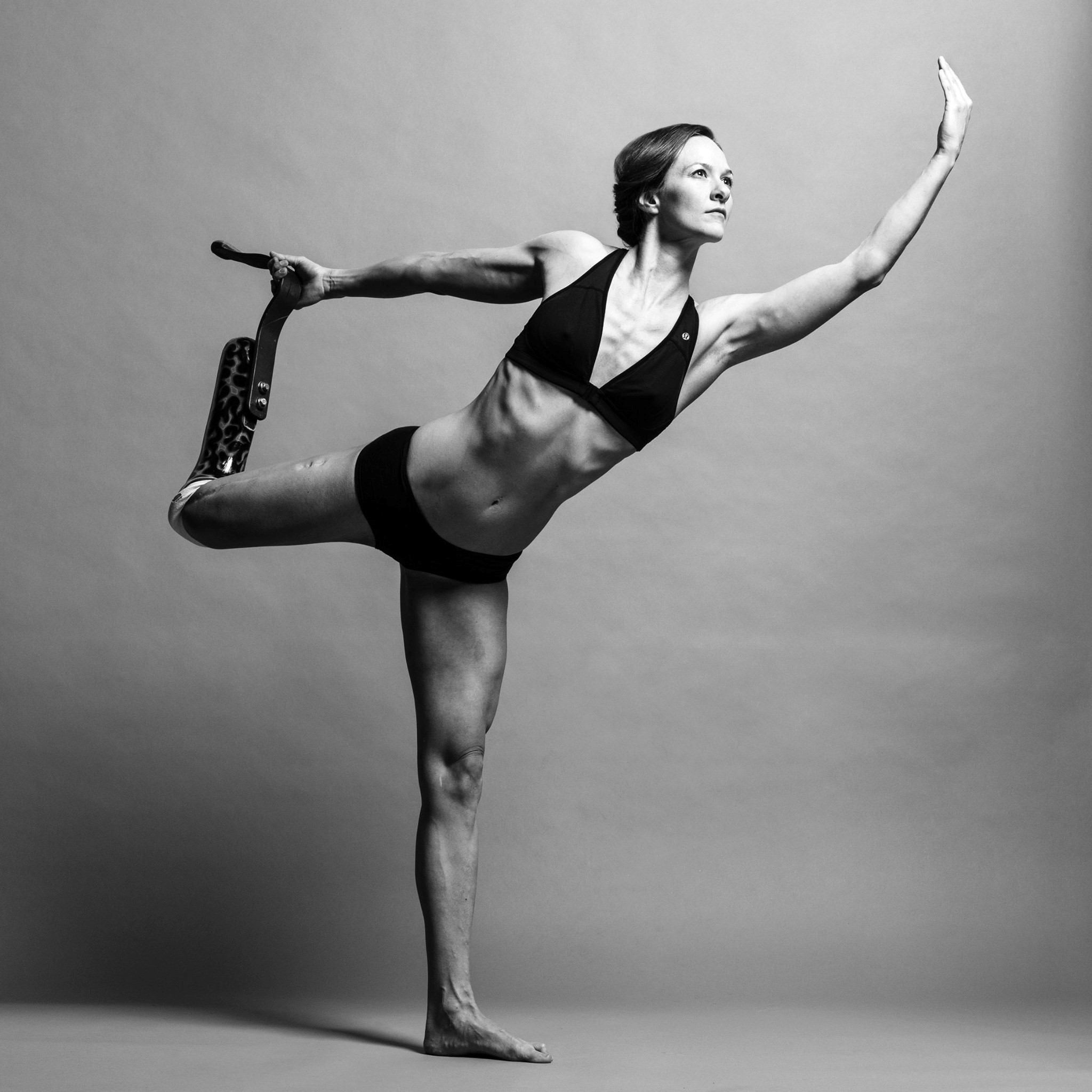
As someone who is fascinated by how the crip or disabled body and mind interacts in a world that is in many ways inaccessible to our disabled or crip bodies and minds, I see technology as a great reflection of ableist rhetoric that can exist in a non-disabled society that doesn’t necessarily have the experiences of disabled people in mind. The possibility for art making with technology and the crip or disabled body and mind is heightened in this state of interaction and can help take us from the medical model of disability into a social one.
I believe the body-sensing technology that Moment Discovery has created exist simultaneously in the medical and the social model of disability. In my experiments with Moment Discovery’s body-sensing tech, Spatio, we were using (from my understanding) 27 detection points on the body including the head, neck, shoulders, elbows, hands, hips, knees, and feet. We noticed right away when working sans prosthetic (I am a below-knee amputee with significant limb difference on my right leg and wear a prosthesis for the majority of the time) that Spatio would try to “fill in” a right leg and foot for me where there simply wasn’t one. I immediately drew the parallel between this “glitch” and Phantom limb syndrome that many amputees experience.
Phantom limb syndrome is the feeling of sensations in a limb that has been removed. It appears that the brain continues to receive signals from the nerve endings that originally supplied signals to and from the missing limb. Phantom limb is thought to be caused by the brain rewiring itself and rearranging sensory information to adjust to the changes in the body. The glitching of Spatio to create a phantom limb where there wasn’t one immediately made me want to explore how this technology worked with many different disabled bodies and minds and how it could reflect the real world experiences of disabled bodies and minds as it had with my phantom limb. Hence, the Phantom Limbs’ research and performance project was born with the technical guidance and dramaturgical eye of Moment Discovery’s Research Director, Pamela Anthony.
Facilitator
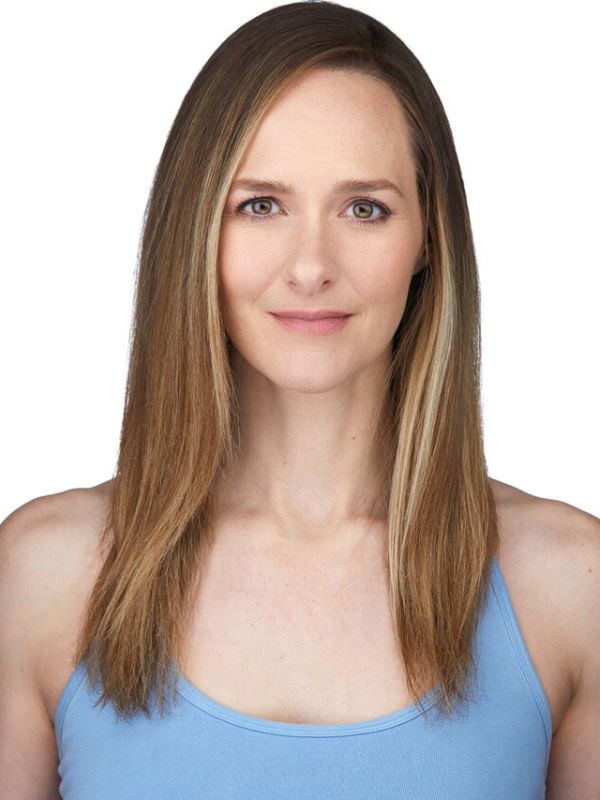
Kristi Hansen (she/her) is a disabled artist who has been living and working in Amiskwaciwâskahikan / ᐊᒥᐢᑲᐧᒋᐋᐧᐢᑲᐦᐃᑲᐣ for 22 years.
Kristi works primarily in the theatre industrial complex as an actor, director, and producer. Kristi is the co-Artistic Director and co-Founder of The Maggie Tree: an ad-hoc theatre collective dedicated to providing opportunity for women artists and artists of underrepresented genders and the former co-Artistic Producer of Azimuth Theatre: a professional theatre company dedicated to producing and presenting original Canadian performance that examines society with a critical gaze. She is currently the Associate Artist at the Citadel Theatre in Edmonton. Kristi is a researcher with Moment Discovery, a tech-art collective, which specializes in body computing. Kristi’s main focus of research with Moment Discovery is the disabled or crip body in tech.
Technology and Deaf Performance
Wednesday, May 22nd at 2:00pm – 2:30pm, Moment Discovery
What is access? How do we define inclusion? And what technologies can we use to make it possible?
Join Deaf artist, Chris Dodd, for a discussion in relation to use of technology for both enhancing and enriching performances by Deaf actors and for creating access for Deaf audiences.
Drawing upon his twenty years of experience as a technologist, Chris will delve into the wide variety of the tools in use by theatres across the country.

Facilitator

Chris Dodd (he/him) Chris Dodd is a Treaty 6 based (Edmonton) award-winning Deaf actor, playwright, accessibility advocate and Governor General Innovation Award finalist. He is the founder and artistic director of SOUND OFF, Canada’s national festival devoted to Deaf performance. Chris holds a degree from the University of Alberta’s Drama program and has been working within Edmonton’s theatre community, and across Canada, for over 25 years. His play, Deafy, was presented as part of Highwire Series during the Citadel Theatre’s 2022/23 season. It was published by Playwrights Canada Press as part of the anthology, “Interdependent Magic: Disability Performance in Canada” and is currently touring across Canada, as well as internationally. Other plays include Alicia and the Machine and Big Ears. Notable performances include the role of Alphonse in Ultrasound at Theatre Passe Muraille. Recent film credits include the role of Odin in the feature film, Finality of Dusk. In 2019 he was the recipient of the Guy Laliberté Prize for innovation and creative leadership by the Canada Council for the Arts.